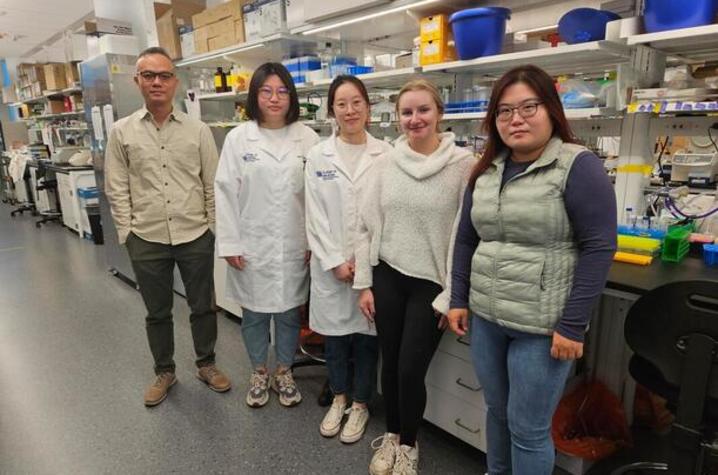Markey study identifies molecular pathway that drives advanced prostate cancer

University of Kentucky Markey Cancer Center researchers have identified a cellular pathway that fuels the progression of aggressive, drug-resistant prostate cancer. The findings of the study, published in the Journal of Clinical Investigation, could lead to new treatment approaches for patients whose cancers no longer respond to hormone therapy.
Led by Ka Wing Fong, Ph.D., the research team found that a protein called RSK1 drives a feedback loop between two other proteins, TRIM28 and E2F1, that helps prostate cancer cells grow and resist treatment.
“Understanding this pathway opens up new possibilities for treatment, especially for patients whose tumors have become resistant to existing therapies,” said Fong, an assistant professor in the UK College of Medicine’s Department of Toxicology and Cancer Biology and member of the UK Markey Cancer Center.
When prostate cancer becomes resistant to hormone therapy, also known as castration-resistant prostate cancer, patients have limited treatment options. Currently, a class of drugs called CDK4/6 inhibitors is being studied to treat patients with castration-resistant prostate cancer. However, about 15% of advanced prostate cancers do not have the RB1 gene, which CDK4/6 inhibitors target, making them ineffective. The study showed that drugs targeting the RSK1-TRIM28-E2F1 pathway could provide an alternative treatment.
The research team’s laboratory studies showed that blocking RSK1 with inhibitor drugs disrupted the pathway and reduced tumor growth in both cell cultures and mouse models. The research also found that the inhibitor drugs were effective against RB1-deficient tumors that did not respond to standard CDK4/6 inhibitors, suggesting this approach might benefit patients whose cancers resist current treatments.
The study also revealed that TRIM28 levels are elevated in advanced prostate cancer patients compared to those with earlier-stage disease, suggesting this pathway becomes more active as tumors progress.
The findings could have immediate clinical implications since RSK inhibitors are already being tested in clinical trials for other cancer types.
Research reported in this publication was supported by the National Cancer Institute of the National Institutes of Health under Award Numbers R03CA256230 and P30CA177558, and the National Institute of General Medical Sciences of the National Institutes of Health under Award Number P20GM121327. The content is solely the responsibility of the authors and does not necessarily represent the official views of the National Institutes of Health.

